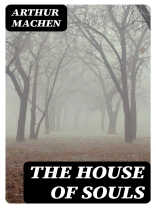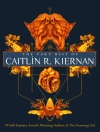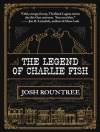In ‘The House of Souls, ‘ Arthur Machen presents a collection of interconnected tales that straddle the line between the supernatural and the psychological. Through lush, evocative prose, Machen explores themes of mysticism, urban decay, and the unseen forces that govern human existence. The stories delve into the depths of human experience, often set against the backdrop of early 20th-century London, where the modern meets the arcane. With a flair for creating atmospheres that oscillate between beauty and terror, Machen situates his work within the context of the Gothic tradition, making profound comments on the spiritual void of contemporary life. Arthur Machen, a Welsh author and mystic, was deeply influenced by his own experiences with the mystical and the esoteric, which permeate his writing. Much of his work reflects his belief in the hidden layers of reality, shaped by personal encounters with the divine and the supernatural. His early life in a rural Welsh setting, coupled with his move to an increasingly industrialized London, nourished a fascination for the interplay between the ancient world and modernity, informing the haunting narratives found in this collection. Readers seeking a poignant exploration of the human psyche enveloped in haunting gothic elements will find ‘The House of Souls’ an essential addition to their literary repertoire. Machen’s rich storytelling and profound insights into the nature of reality will resonate with those interested in the mystical and the obscure. This work is a testament to the power of suggestion and the often-overlooked wonders lurking in both the mundane and the extraordinary.
关于作者
Arthur Machen (1863-1947) was a Welsh author and mystic who is best recognized for his influential supernatural, fantasy, and horror fiction. His notable contribution to the weird fiction genre has garnered him a dedicated following and considerable critical acclaim. Machen’s literary style often delves into the unseen layers of reality, revealing a mystical and often eerie atmosphere that permeates his works. One of his celebrated collections, ‘The House of Souls’ (1906), brings together some of his finest stories, including the renowned ‘The White People’ and ‘The Great God Pan.’ The latter is particularly famed for its blend of horror and sensuality, which was controversial at the time, but ultimately contributed to the shaping of the modern horror genre. Machen’s work is marked by lush prose and rich descriptions that transport readers into otherworldly realms where the veneer of normality is peeled back to expose the arcane and the uncanny. Much of his fiction examines the interplay between the mystical and the mundane, making his oeuvre a profound exploration of humanity’s relationship with the unknown. His impact is evident in the admiration expressed by contemporary and later authors such as H.P. Lovecraft and Stephen King, and his writings remain a touchstone for enthusiasts of gothic and supernatural literature.












